Herbacetin
- CAS NO.:527-95-7
- Empirical Formula: C15H10O7
- Molecular Weight: 302.24
- MDL number: MFCD00210585
- SAFETY DATA SHEET (SDS)
- Update Date: 2024-11-19 23:02:33
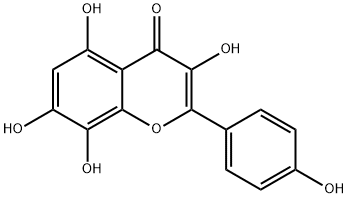
What is Herbacetin?
Chemical properties
Soluble in methanol, ethanol, DMSO and other organic solvents, derived from the aerial part of Equisetum, Rhodiola rosea.
The Uses of Herbacetin
Herbacetin is a flavonol compound, and a natural inhibitor of E.coli β-glucuronidase. Herbacetin inhibits inducible nitric oxide synthase via JNK and nuclear factor-κB in LPS-stimulated RAW264.7 cells. Molecular docking study of flavonoid compounds as an inhibitor of β-ketoacyl acyl carrier proteinsynthase II of Pseudomonas aeruginosa.
Definition
ChEBI: Herbacetin is a pentahydroxyflavone that is kaempferol substituted by a hydroxy group at position 8. It is a natural flavonoid from flaxseed which exerts antioxidant, anti-inflammatory and anticancer activities. It has a role as an EC 4.1.1.17 (ornithine decarboxylase) inhibitor, an antineoplastic agent, an apoptosis inducer, an angiogenesis inhibitor, a plant metabolite, an antilipemic drug, an anti-inflammatory agent and an EC 3.4.22.69 (SARS coronavirus main proteinase) inhibitor. It is a pentahydroxyflavone and a 7-hydroxyflavonol. It is functionally related to a kaempferol.
Biological Activity
Herbacetin is a natural flavonoid in flaxseed with a variety of pharmacological activities, including antioxidant, anti-inflammatory and anticancer effects. Gluprotamine is an allosteric inhibitor of Ornithine decarboxylase (ODC), which directly binds to Asp44, Asp243 and Glu384 on ODC.
in vivo
Herbacetin (orally administration; 20mg/kg) significantly reduces the body weight, plasma glucose, plasma insulin, and HOMA-IR activity in obesity associated insulin resistant mice (OIR). (Herbacetin dissolves in 0.5% DMSO) .Herbacetin (intraperitoneal injection; 0.4, 2, 10 or 20 mg/kg; BW) decreases the number and size of polyps in APCM in+ mice with no overt toxicity.
< b>
Properties of Herbacetin
| Melting point: | 284℃ |
| Boiling point: | 618.7±55.0 °C(Predicted) |
| Density | 1.799 |
| solubility | DMF:30.0(Max Conc. mg/mL);99.26(Max Conc. mM) DMSO:30.0(Max Conc. mg/mL);99.26(Max Conc. mM) DMSO:PBS(pH 7.2) (1:4):1.0(Max Conc. mg/mL);3.31(Max Conc. mM) Ethanol:2.0(Max Conc. mg/mL);6.62(Max Conc. mM) |
| form | A crystalline solid |
| pka | 6.49±0.40(Predicted) |
| color | Light yellow to yellow |
Safety information for Herbacetin
| Signal word | Danger |
| Pictogram(s) |
 Skull and Crossbones Acute Toxicity GHS06 |
| GHS Hazard Statements |
H301:Acute toxicity,oral |
| Precautionary Statement Codes |
P301+P310:IF SWALLOWED: Immediately call a POISON CENTER or doctor/physician. |
Computed Descriptors for Herbacetin
New Products
4-AMINO-TETRAHYDRO-PYRAN-4-CARBOXYLIC ACID HCL 4-(Dimethylamino)tetrahydro-2H-pyran-4-carbonitrile 4-Aminotetrahydropyran-4-carbonitrile Hydrochloride (R)-3-Aminobutanenitrile Hydrochloride 3-((Dimethylamino)methyl)-5-methylhexan-2-one oxalate 1,4-Dioxa-8-azaspiro[4.5]decane 5-Bromo-2-nitropyridine Nimesulide BP Aceclofenac IP/BP/EP Diclofenac Sodium IP/BP/EP/USP Mefenamic Acid IP/BP/EP/USP Ornidazole IP Diclofenac Potassium THOMAIND PAPER PH 2.0 TO 4.5 1 BOX BUFFER CAPSULE PH 9.2 - 10 CAP SODIUM CHLORIDE 0.1N CVS ALLOXAN MONOHYDRATE 98% PLATINUM 0.5% ON 3 MM ALUMINA PELLETS (TYPE 73) LITHIUM AAS SOLUTION 2-Bromo-1-(bromomethyl)-3-chloro-5-nitrobenzene 2-Bromo-3-nitroaniline N-(3-Hydroxypropyl)-N-methylacetamide 3-Bromo-6-chloropyridazine 4-ethyl-3-nitrobenzoic acidRelated products of tetrahydrofuran
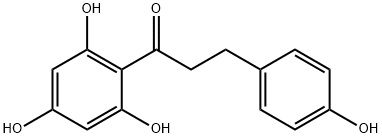
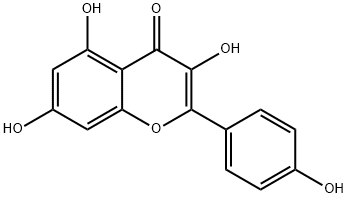
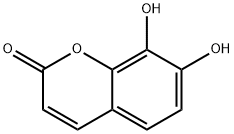
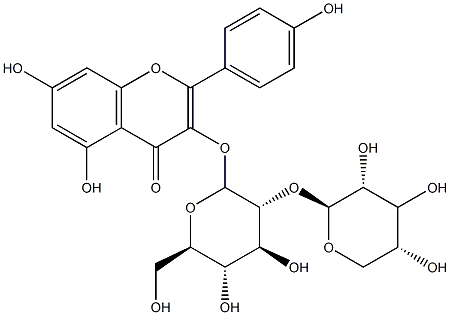
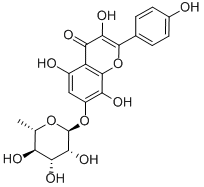
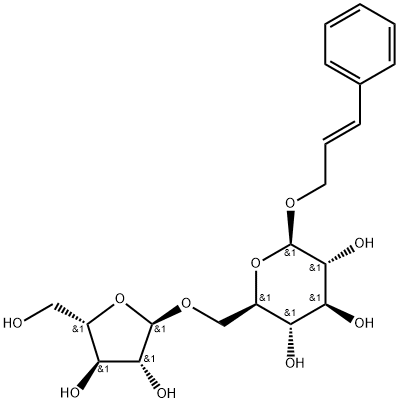
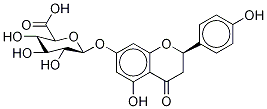
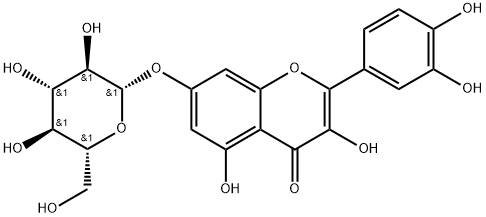
You may like
-
 1-Methyl-6-oxo-1,6-dihydropyridazine-3-carbonitrile 98%View Details
1-Methyl-6-oxo-1,6-dihydropyridazine-3-carbonitrile 98%View Details
99903-60-3 -
 88491-46-7 98%View Details
88491-46-7 98%View Details
88491-46-7 -
 1823368-42-8 98%View Details
1823368-42-8 98%View Details
1823368-42-8 -
 2-(3-(tert-butyl)phenoxy)-2-methylpropanoic acid 1307449-08-6 98%View Details
2-(3-(tert-butyl)phenoxy)-2-methylpropanoic acid 1307449-08-6 98%View Details
1307449-08-6 -
 Ethyl 3-(furan-2-yl)-3-hydroxypropanoate 25408-95-1 98%View Details
Ethyl 3-(furan-2-yl)-3-hydroxypropanoate 25408-95-1 98%View Details
25408-95-1 -
 2-Chloro-5-fluoro-1-methoxy-3-methylbenzene 98%View Details
2-Chloro-5-fluoro-1-methoxy-3-methylbenzene 98%View Details
1805639-70-6 -
 1784294-80-9 98%View Details
1784294-80-9 98%View Details
1784294-80-9 -
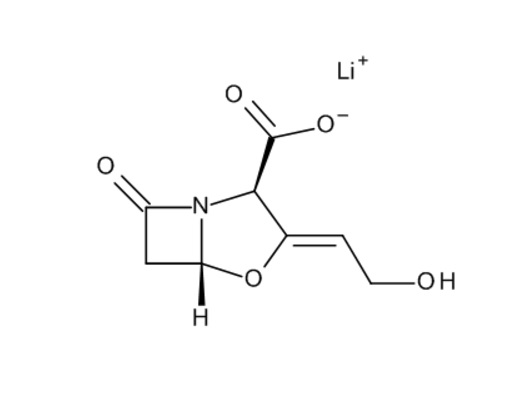 Lithium ClavulanateView Details
Lithium ClavulanateView Details
61177-44-4